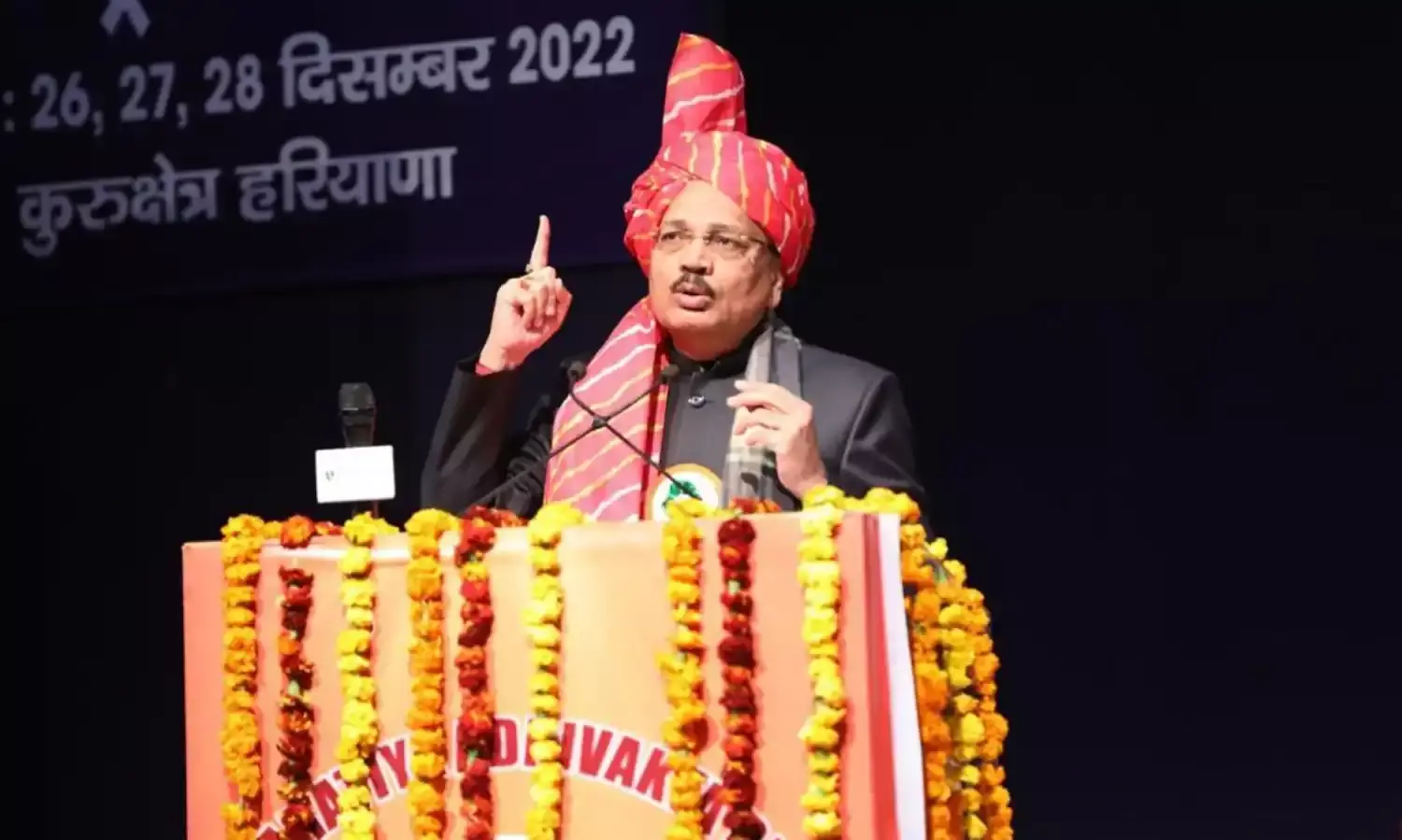Justice Surya Kant On The Evolution Of Law, Legal Realism And Constitutional Morality

Supreme Court Judge, Justice Surya Kant, while addressing as the Chief guest at the 16th National Conference of the Akhil Bhartiya Adhivakta Parishad at Kurukshetra in Haryana yesterday on the topic '75 years of Resurgent Bharat: Changing contours of Law and Justice', discussed on how our legal system has evolved, and hailed India's decision to supply Covid-19 vaccines to 80 other nations that could not have accessed it, and termed it an example of Constitutional Morality.
Discussing the evolution of our Legal System, he said that "The evolution of our legal system does not begin with our liberation from British Rule, but it pre-dates Independent India. It is an accepted view among scholars that India had a form of legal system and structuring even during the bronze age and the Saraswati Sindhu or the Indus Valley Civilisation. The most authoritative and famous text that lays out the uniquely Indian way of viewing law, politics, domestic and international affairs.is Kautilya's Arthshastra."
Justice Surya Kant further said that he was not advocating any particular principle or rule of law which was prevalent in ancient India but it was certainly not something that we got from the Britishers. "We had a very rich heritage and that heritage is reflected from the very meaning of the word 'Arthshastra' which conveys the intent behind all-encompassing Rules of the Nature. It's simple terms, Kautilya's objective was to bestow upon us his understanding of the science of all things, whether they be economic trade or wealth, social polity and unity and administration of Justice and law. It is very own magnum opus on how to run a fully functioning State and is considered to be one of the earliest works of legal realism."
About Legal Realism, he said that we had been taught that legal Realism originated in the United States of America, where renowned thinkers like Oliver Wendell Holmes and Karl have developed it. "The names of these legal stalwarts are connected so inextricably with legal religion as a concept that it has now become a staple across different countries in the undergraduate legal system." But the fact of the matter was that Kautilya's work had already covered many of the basic themes of legal realism much before the term was even coined. This indicated that though the term legal realism was not used earlier, does not mean that the basic idea had not been crystalized in our own cultural and political legal philosophy.
He compared the works of Kautilya and HLA Hart and said that Kautilya's overall construction of the legitimacy of Law and a more modern iteration of the same notion in the famous work of HLA Hart. "HLA Hart's work was focused on how the law goes beyond merely corrective sanction and punishment of people for failing to follow it. Rather there were complex methods by which we imbibe law and accord social sanction to it. Similarly, Kautilya recognized that the laws' effect and importance transcend into effect on citizens and it's administration by courts of law. Kautilya propounded that law was also a determinant of morality and was influenced by it as well."
He also emphasised on the importance and need to repeatedly amend the multiple statutes to keep up the contemporary challenges and said that this issue of amending was specifically dealt with in Kautilya's theories by creating this synergy between law at one end and society, culture ad dharma on the other.
On Constitutional Morality, Justice Surya Kant hailed India's effort in helping the poorer nations and said that "it was important to vaccinate people in poorer regions of this world where vaccines were not readily available. this was not just a governmental decision but shows solidarity and sharing. When we think of Constitutional morality, we need to think of the common good, but it does not mean it is subservient to societal norms or customs.
He also highlighted that the first mention of the concept of Constitutional morality was by Justice AN Ray in the Kesavananda Bharti case and further emphasised that "the principle of Constitutional morality will be guided by centuries-old morals which have stressed out society from darkness to light."
Justice Kant also stressed on the importance of performing one's constitutional duties and said that all the rights enacted were enacted for a price and the price was duty. "A judicial or legislative structure should not be seen in the mirror of rights only, whether the legislature is enacting a law to provide a right."
He said that in the coming years, we must strive to identify the duties and ensure that duties ere complimentary to rights. "In the next 75 years, we must identify the different kinds of duties and be honest to those duties. Rights and duties must be made complimentary to each other and the time has come for that."

